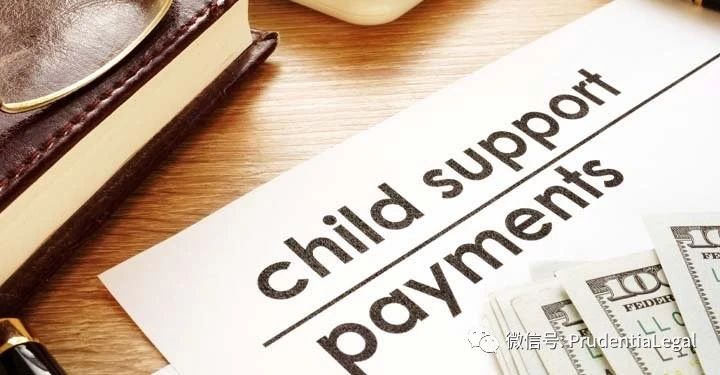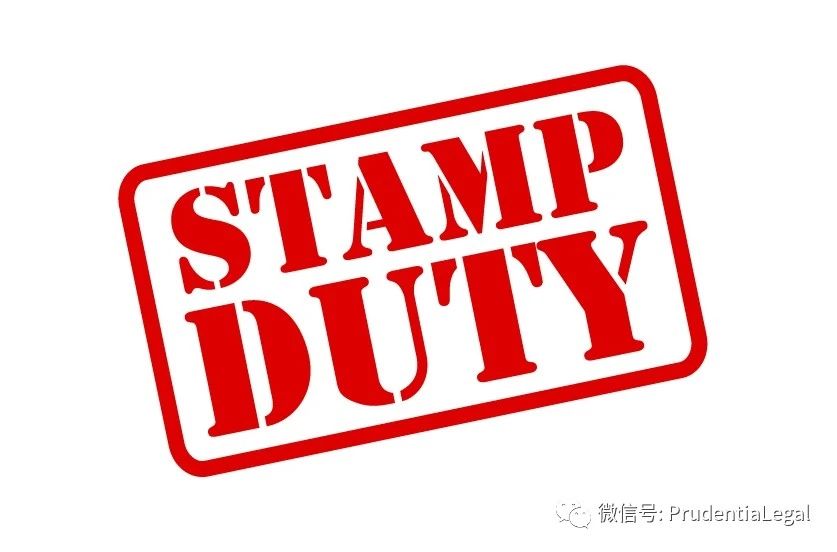Avoiding Fraud – Importance of Legal Advice Illustrated by Two Cases
Avoiding Fraud – Importance of Legal Advice Illustrated by Two Cases Prudentia Legal: Edmund Leung 2021-09-10
|
Believing in the wrong person may lead to significant consequences, as once again demonstrated in recent cases in our firm. Sometimes mistakes may even compound on each other to reach a result that has never come across our minds. It is very important to consider and research on what would be the appropriate procedures for important decisions, and seek assistance from licensed or accredited professionals, especially lawyer’s advice, as there may be many legal and financial risks if due diligence was not completed before taking action.
Migration Case In this first case, our client would like to migrate to Australia. She tried to search for migration agents who may assist her in her application. There were many solicitors or migration agents who analysed her situation and told her that there is little chance for her application to succeed, but the client was not deterred. Her relatives provided the contacts of a person to her. We shall refer to this person as R in this article. R told our client that she has special connections who may arrange a visa. Soon after, the client decided to contract with R for the application. The client did not review the qualifications of R, nor did she research on the background of the company that she signed the contract with. A large sum of money was paid and personal documents were handed over to R. R never prepared nor submitted an application to the authorities. After chasing R for a reply and not hearing back, our client tried to get her money back but R did not respond. At this point in time, reporting to the police might not be effective in getting back the money as this is characterised in Australia as a contractual, civil dispute. The only way to retrieve the money paid was by initiating legal proceedings to sue the person.
While legal proceedings were started against R, R did not admit to knowing the client. Due to how the proceedings were conducted, the case went on for a year but reached nowhere. The client then turned to us for assistance. We took charge of the case and the case soon went to trial in around half a year. The interjection of the COVID-19 pandemic led to many delays throughout the trial of the case and the trial only ended another half a year later. The court ordered that R is to pay to our client all money she has paid to her, and also a large proportion of the legal fees in the case.
During the process of this case, we discovered that R never had a migration agent licence, but has long claimed that she could assist in dealing with migration matters, and had previously been involved in dishonest dealings. While our client won her case, what further complicated matters was that the other side raised an appeal and we are now in the appeal process, still waiting for an outcome. More costs have been spent on litigating the matter than the original loss.
There are a few points of note in this case. Firstly, if the client tried to search for the licence with the name of R, she would have found that no licences were registered in that name, indicating that R does not have a migration agent licence. This may have raised warning signs for the client to search for more reliable forms of migration assistance being registered migration agents. It is important to have testimony as to the quality of professional services, but it is more important to ensure that the person you are contacting has the prerequisite qualifications. The qualification does not guarantee that there will be no problems, but at least there are certain restraints that apply and it will be clear where you can seek assistance, and the magnitude of the problem might not be as large. Secondly, the time and effort needed in litigation can never be underestimated. Winning at law can still be a loss. In a lot of instances, the losing party may use bankruptcy proceedings to prevent the winning party from recovering the damages. It is always better to avoid legal procedures in the first place rather than seeking to rely on the law to resolve your problem after it arises. This would require one to consult qualified professionals, especially lawyers, before making substantial decisions. Lawyers would analyse the potential risks in a matter and provide a suggested plan in order to avoid risks as much as possible. Furthermore, litigation usually takes a long time. While there may be a general timeframe for cases, there are lots of situations where litigants can depart from the timeframe, both for legitimate reasons or to frustrate the other side. It is very difficult to foresee what is ahead at the beginning of the proceedings, and one might be pressed to go on and cannot leave in the middle of the proceedings.
We must note though, even if due diligence was performed and everything seems to be fine, there is still the possibility for disaster to strike. As seen from the disciplinary proceedings, even licensed migration agents can engage in problematic conduct that affects the interest of their clients. At no fault of our client, the pandemic affected the timeliness of the legal procedures and contributed to further loss in time and effort. There are all risks that are inherent with the human condition and conduct of social affairs. It is therefore very important to consult legal and other professionals and respect the advice from these professionals before making important decisions, to prevent problems from happening at the beginning, especially one like migration where its outcome is indeed life-changing.
Investment Case In our second case, our client would like to invest in a company with good prospects for growth. He met someone who we call Z from his social circle. Z mentioned that he has plans for a new business, and became interested in joining that business by providing capital to the new company. Z explained his business plans over social gatherings, with claims purportedly made on the expected business prospects, but no formal proposals and plans were provided. Our client nevertheless was satisfied that these plans were reasonable, and the parties arranged for money to change hands and a company set up for this new business without having signed any written agreement.
After the business has gone on for some time, the client realised that the company is not doing well, and it is impossible to achieve the originally expected returns foreshadowed by Z. At the same time, Z was in complete control of the company and the client had no access to operation data, documents and was completely eliminated from company operations. The client lost his trust in Z and would like to get his money, the capital of his investment back. The problem here is that there had not been a written agreement of any sort to confirm what the agreement between the parties were. This opens a can of worms for legal argument. When our client argues that the money paid was an investment or loan, the other party argued that the money was the price paid for shares. When our client would like to prove that he was misled, the other party present a different version of events. All of these arguments depend on the use of testimonial evidence to prove, as there was very scarce written record of the dealings between the parties, leading to uncertainty as the evidence from a person’s recollection might not be accepted by the court and is less clear than formal records. This means that there is no clear outcome for the case and the parties never know the determination of the court on these issues until the end of litigation, creating huge litigation and financial risk.
Under our planning and guidance, our client achieved success in his case, with the court awarding him most of his money claimed. However, as with our first case study, the other side appealed against the decision, and our client cannot get his money still at this stage. Even if the appeal is not the problem, it has appeared that the defendant does not have sufficient funds to make the repayment, undermining the usefulness of litigation.
The point to learn from in this story is the importance of due diligence and prior legal advice before entering into any business arrangement, especially with someone you do not have a clear understanding of. There are inherent risks of doing business, with more potential benefits comes with more potential risk. The degree of legal protection may different depending on your negotiations with the business partner and under different investment arrangements. One should be legally advised to understand the risks before making a commercial decision, after assessing if the risks are ones that you are willing and able to withstand. It is very important to research on the background of your business partners thoroughly before making investment decisions, especially on ventures that you might not be fully familiar with or have hands-on management of. It is also very important to put all agreements on paper, with lawyers drafting contracts and deeds regulating company management and financial issues. Lastly, it would be prudent to research and seek legal advice in drafting complete agreement documents to establish a clear company management structure with good records of decisions and procedures, making clear the powers and responsibilities each business participant may have in the running of the business. In the event of dispute, at least you will know that there are written records that may support your case and provide more substantive proof against adverse allegations.
Conclusion The role of lawyers include much more than litigation and arguments in court. Only a very small portion of disputes reach the court in actuality. A lot more disputes are resolved before litigation and much more have been prevented in the first place with the drafting of good commercial agreements and review of terms and conditions. A good lawyer may help in achieving a good outcome in court, but a better lawyer should be able to guide you before that stage should you decide to seek legal advice. Legal advice is like insurance. You never know you need it until too late. Prudentia Legal is a general service law firm which may provide advice to you on a wide range of legal concerns, from more procedural matters such as property transactions and probate issues to commercial dealings and family disputes. Please contact our staff members for discussions on your circumstances.
Note: The cases in this article are abridged version of events and do not constitute any description or speculation of legal consequences. This article should not be construed as legal advice.
|
相关内容
-
 详情
详情Avoiding Fraud – Importance of Legal Advice Illustrated by Two Cases
Avoiding Fraud– Importance of Legal Advice Illustrated by Two CasesPrudentia Legal: Edmund Leung2021-09-10Believing in the wrong person may lead to significant consequences, as once again demonstrated in recent cases in our firm. Sometimes mistakes may even compound on each other to rea
-
 详情
详情Temporary changes States have made to signing, witnessing or attending to documents
-
 详情
详情Employees or Contractors – A Discussion on New Developments for App Transport and Delivery Platforms
The gig economy has become everyday occurrence in the past decade. It has also developed in a way exceeding what may be originally envisioned. From the consumer’s perspective, the ease of on-call services for transport and food delivery alike has led to an explosion in demand, with many newcomers t
-
 详情
详情Summary of changes to the new VIC Residential Tenancy laws
The start date of the Residential Tenancies Amendment Act 2018 (the “ACT”) which outlines the framework of Residential Tenancy laws has been delayed due to coronavirus (COVID-19), with the amendments to be introduced by 29 March 2021, rather than the original 1 July 2020. The Residential Tenancies
-
 详情
详情Acting as Witness in Legal Proceedings
While direct involvement in criminal matters or civil litigation might not be that common for a person of the general public, it might well be possible that you have witnessed a crime or an event, and may be required to give evidence in court as a witness. What does being a witness entail? Speaking
-
 详情
详情Child Maintenance Trust
Division 6AA section 102 AG of the Income Tax Assessment Act 1997 (Cth) provides that a Child Maintenance or Child Support Trust (“CMT”) can be established following a relationship breakdown. Simply speaking, A CMT is a discretionary trust specifically set up to provide support for a child (or chi
-
 详情
详情Recent Changes to NSW Stamp Duty and Land Tax Policies
Stamp DutyThe New South Wales government has previously announced that they are introducing new legislation to increase the threshold amount for offering stamp duty exemption or reduction for first home buyers, such that purchasers of higher-priced properties may also benefit. This policy change has
-
 详情
详情House and Land Package – Some tips to share
House and Land Package – some tips to shareIntroductionIt’s noted the “house and land package” in the property market has maintained its popularity over the years. It’s difficult to find a brand new four-bedroom free-standing house within a 30 km radius from the Sydney CBD under $1 millio
-
 详情
详情New Australian Visa Policies Applicable to Hong Kong
The Prime Minister of Australia, the Honourable Scott Morrison MP, has announced yesterday that new visa policies and measures aimed to attract students and business talents from Hong Kong to Australia, and allow them to stay in Australia, will be offered to “Hong Kong passport holders”. It is not
-
 详情
详情Off-the-plan Stamp Duty Concessions in Victoria
The state of Victoria, specifically its capital Melbourne, has many high-rise and multi-occupancy residential developments completed and ongoing. Regeneration and redevelopment projects resulting in high-rise skyscrapers have dramatically changed Melbourne’s skyline in the past decade. Such multi-o
-
 详情
详情Intervention Orders In VIC
An individual (the applicant) (or police department but today we only talk about the individual application) may apply for an intervention order in the Magistrates Court of Victoria which places legal restrictions upon another individual (the respondent) and prohibits the respondent from engaging in
-
 详情
详情Preparation of Contract for the Sale and Purchase of Land in New South Wales
A contract for the sale and purchase of land (Contract) comprises three sections: The first being the substantive contract, usually the standard contract drafted by the Law Society of New South Wales and the Real Estate Institute of New South Wales, containing general conditions; the second being th